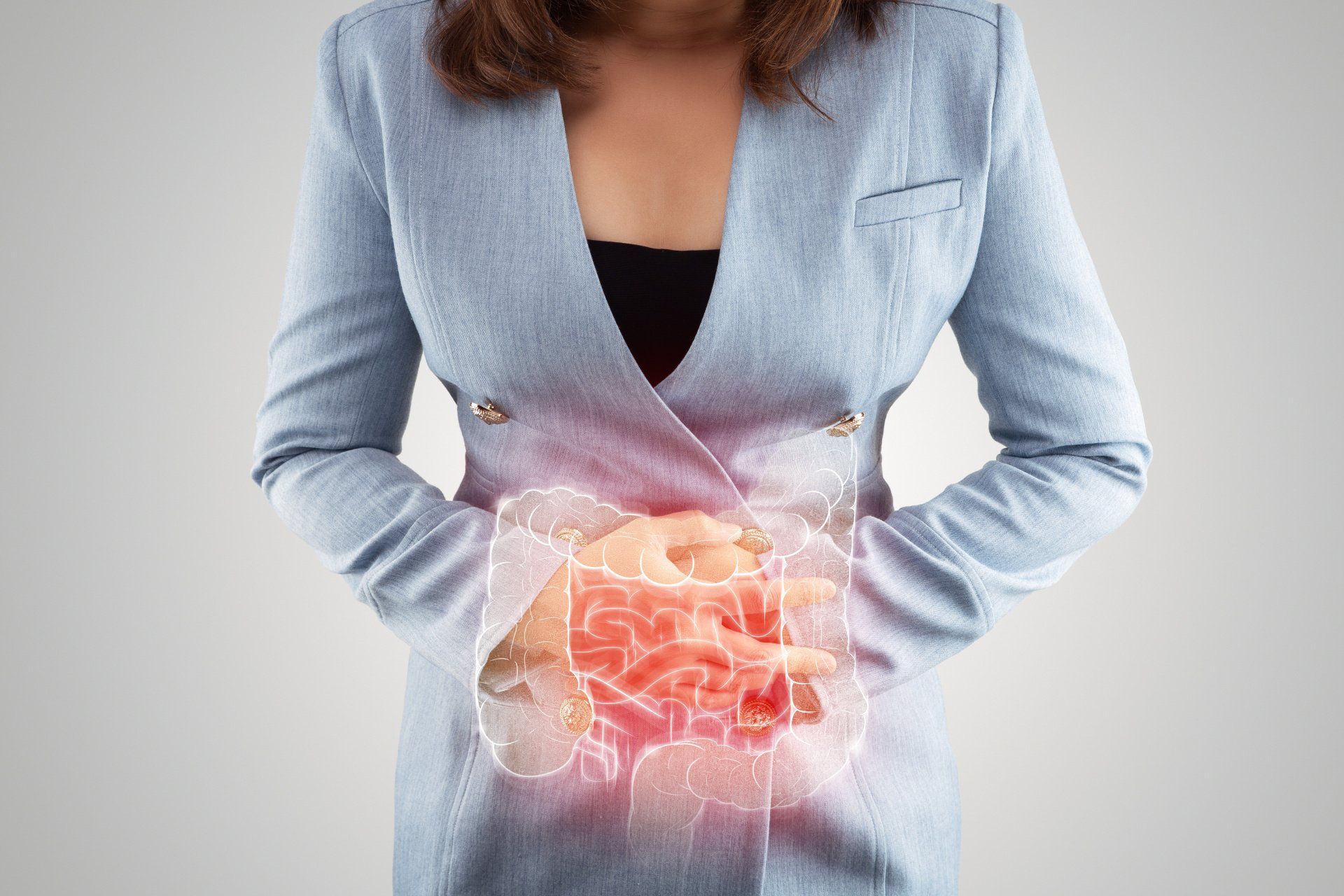The 5 Top Causes of Small Intestinal Bacteria Overgrowth (SIBO)
Small Intestinal Bacteria Overgrowth (SIBO) occurs when there are too many bacteria in the small intestine. Although bacteria are vital for the functioning of the healthy body, too many or an imbalance of certain types of bacteria can lead to a variety of health concerns, like SIBO.
There are many reasons why bacteria can relocate to the small intestine, or why the bacteria usually present there to flourish. According to the definition, SIBO is both the cause of a variety of symptoms - and is caused by a variety of health concerns. To fully treat SIBO, it is important to identify what caused it. Without treating the cause, SIBO will likely recur after treatment. Typically, levels of bacteria are kept in check by the following features in the digestive tract:
- Acidic secretions from the stomach
- Downward propulsive impulses such as peristalsis and the migrating motor complex (MMC)
- The ileocecal valve (a one-way valve connection between the small intestine and large intestine)
- Immunoglobulins in the small intestine (that fight bacteria and other pathogens)
- Secretion of bile from the gallbladder
Any form of dysfunction in these processes can allow bacteria to overgrow in the small intestine, resulting in a SIBO diagnosis.
Common Signs and Symptoms of SIBO
Signs:
- B12 deficiency - fatigue, nerve issues such as numbness or tingling, depression, poor memory, megaloblastic anaemia
- Chronic related illnesses – Crohn's Disease, Celiac, Chronic Fatigue Syndrome, hypothyroidism, fibromyalgia,
- Iron deficiency - fatigue, shortness of breath, pale skin
- Joint pain, weight gain or weight loss, sugar and carbohydrate cravings
- Psychiatric - stress, brain fog, poor memory, anxiety, depression
- Skin - acne, rosacea, eczema, psoriasis, dermatitis
- Vitamin A deficiency - night blindness, low immune system
- Vitamin D deficiency - poor bone health, hormonal imbalance, poor immunity
- Vitamin E deficiency - muscle weakness, poor immunity
Symptoms:
- Abdominal gurgling, discomfort, or pain
- Burping or reflux after meals
- Chronic diarrhoea and/or constipation
- Commonly associated symptoms of SIBO
- Foul-smelling gas
- Multiple food sensitivities
- Wind and bloating within one hour of eating
5 Causes of SIBO
1) Low stomach acid
Low stomach acid, also known as hypochlorhydria, interferes with the initial stages of digestion. Without adequate acid, food is not broken down sufficiently, allowing large undigested carbohydrates into the small intestine. The bacteria in your small intestine then feed off of these carbohydrates, allowing them to multiply. Stomach acid suppresses the growth of bacteria; so, when levels are low, the bacteria can proliferate freely.
The bacteria will then produce hydrogen gas, increasing pressure in the abdomen, pushing acid from the stomach into the oesophagus, leading to acid reflux. Generally, doctors will prescribe an acid-blocking medication; however, since the initial issue was a lack of acid, these medications can worsen symptoms and increase the likelihood of developing SIBO. Other factors that can lead to low stomach acids are stress, inflammatory foods, antacids nutrient deficiencies, or an H. Pylori infection.
2) Migrating Motor Complex Dysfunction
In the digestive system, the migrating motor complex (MMC) is a pattern of gut contraction that moves bacteria from the small intestine into the large intestine between meals and during the night. However, if MMC function is impaired, bacteria is then not cleared from the small intestine correctly, increasing the likelihood of developing SIBO. A variety of factors/conditions increase the risk of impaired MMC function. Here’s a list of the most prominent ones:
- Celiac disease
- Colitis
- Crohns
- Diabetes
- Ehler's Danlos
- Gastroenteritis,
- History of eating disorders
- Hypothyroidism
- Inflammatory bowel disease
- Lyme disease
- Medications such as opioids and proton pump inhibitors
3) Dysfunction of intestinal nerves and/or muscles
In addition to the MMC, the digestive tract requires peristalsis to move food from mouth to anus. Many conditions can interfere with this movement including, but not limited to:
- Achalasia
- Gastroparesis
- Parkinson’s
- Scleroderma
- And other neurogenic issues
Structural changes in the digestive tract can also inhibit the movement of bacteria from the small intestine to the large intestine or allow the migration of bacteria upwards from the large intestine. All the following can interfere with the normal bacterial flow:
- Adhesions
- Ileocecal valve removal or impairment
- Masses
- Non-draining pockets in the small intestine (diverticula)
- Obstructions
- Strictures (an area of narrowing in the intestines)
4) Altered bile flow and enzyme production
Bile and enzymes are both required for adequate digestion of the food we eat. Proteolytic enzymes and bile acids additionally have anti-bacterial effects, helping to protect our gut against the possibility of bacterial overgrowth. Without sufficient enzymes, carbohydrates may not be broken down sufficiently, providing plenty of fuel for bacteria to overgrow. So, without the protective efforts of enzymes and bile acids, there is an increased risk of developing SIBO.
5) Stress
Stress interferes with many aspects of digestion, but how does it relate to SIBO?
When we are under stress, our body produces less stomach acid, leading to reduced bile secretion and enzyme production - both of which we have just learned can contribute to SIBO. Moreover, stress weakens the immune system, allowing for the overgrowth of bad bacteria or an infection that may require antibiotics - further increasing the risk of developing SIBO.
Additionally, stress interferes with gut motility, slowing the movement of food, and bacteria, through the gut. Reduced gut motility predisposes us to develop SIBO. So, in a nutshell, stress harms our digestive system and increases the risk of SIBO.
Care at Chartwell Hospital
At Chartwell Hospital, we have a team of specialists dedicated to providing the best possible care for all of our patients. We diagnose and treat various gut health-related issues, including SIBO.
Our specialists use comprehensive examinations and testing to diagnose the problem at hand, depending on your signs and symptoms. These procedures vary from testing blood and stool samples, all the way through to other diagnostic tools such as colonoscopy, gastroscopy, flexible sigmoidoscopy, MRI, X-rays, and CT scans.
To book a FREE consultation with us, please complete our online form to arrange a free one to one video consultation.









